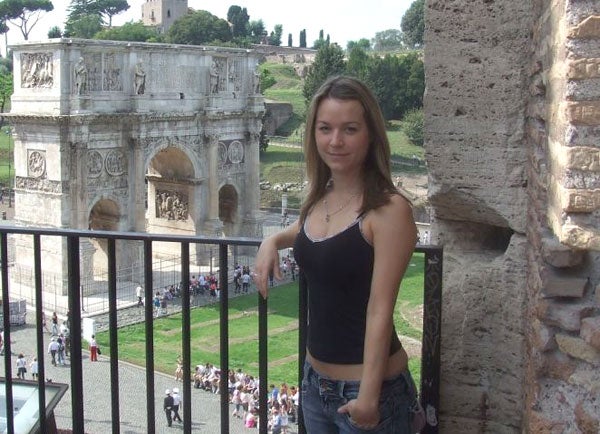Wealth Check: 'Running costs of our first home are always more than we budget for'

Your support helps us to tell the story
From reproductive rights to climate change to Big Tech, The Independent is on the ground when the story is developing. Whether it's investigating the financials of Elon Musk's pro-Trump PAC or producing our latest documentary, 'The A Word', which shines a light on the American women fighting for reproductive rights, we know how important it is to parse out the facts from the messaging.
At such a critical moment in US history, we need reporters on the ground. Your donation allows us to keep sending journalists to speak to both sides of the story.
The Independent is trusted by Americans across the entire political spectrum. And unlike many other quality news outlets, we choose not to lock Americans out of our reporting and analysis with paywalls. We believe quality journalism should be available to everyone, paid for by those who can afford it.
Your support makes all the difference.Nicola Coleman is an assistant accountant training to become aCertified Accountant by 2013, which could see her income rise dramatically. She recently bought her first home in Epsom, Surrey, and her main financial concerns are her mortgage and living expenses.
"I have been in my job for 21 months and have just bought a home worth £150,000," she says. "I also want to think about the future and my main goal for investing money is to help towards my pension and retirement."
Nicola is not married and has no children so she hopes to use extra funds from her steadily increasing pay to secure her long-term financial position.
"I am not currently contributing to a pension scheme, however, it is likely I will have the option through work within the next two years," she adds. "I would like advice on savings and investments which I can afford once the cost of living has been deducted from my monthly income."
Case notes
Annual income: £24,000 (increasing by £1,500 every quarter)
Pension: None
Savings: £1,000 in an ISA
Offering advice this week are David Brunning of Brunning Newman Houghton, Brian Tabor of Carematters, and Robert Forbes of Plutus Wealth Management...
Budgeting and protection
"Nicola's situation is stronger than many people of her age but she needs to be very careful," says Forbes. "She needs to have an emergency fund of three months' outgoings and she should look at low-cost income protection insurance to provide a fallback if she's ill and unable to work."
"The provisioning and running costs of our first home are almost always higher than we budget for, so it is important that Nicola commits to few long-term financial plans such as a pension arrangement until these day-to-day costs are known," says Tabor. "Nicola has no financial protection in place to deal with the financial effects of long-term illness. While statistically unlikely, serious and long-term illness can strike us all and scupper the best financial planning."
Brunning agrees, saying: "Nicola makes no mention of life assurance or other arrangements to support her lifestyle or mortgage payments in the event that she fell seriously ill or died, which is an important oversight."
Brunning also says Nicola should increase her reserves to £4,500 – three months' household expenditure – as an emergency fund.
Savings:
"Having built up her cash reserves to a realistic level, Nicola should turn her attention to creating capital," says Brunning. "She should use the tax benefits offered by ISAs – several companies offer regular premium investment ISAs starting from £50 per month."
Nicola must be able to react to changing circumstances, according to Forbes. "In the short term, maintaining flexibility is the key to building Nicola's wealth," he explains. "Keeping money in an ISA gives her the flexibility of paying off a chunk of her mortgage in 2012 (when her fixed rate comes to an end) if the economic circumstances make it necessary, which could give her access to better loan-to-value mortgages and better rates."
Pensions and retirement:
"I believe that in the next couple of years Nicola should only invest in a pension arrangement if her employer is also willing to contribute or she becomes a higher tax rate payer," says Tabor. "If neither of these applies and she has saved sufficiently into her 'buffer' savings, she might consider saving regularly into a 'stocks and shares' ISA. This can be subsequently accessed at any time to transfer into a suitable pension arrangement, support any changes to personal or family circumstances or perhaps help with the costs of future house moves."
Forbes agrees, saying Nicola would be better contributing to an ISA rather than a pension until she becomes a higher rate tax payer. "Under the present tax rules she would gain twice the tax relief when she is a higher tax rate payer in a couple of years' time," he explains.
"Nicola has taken a realistic view on her likely retirement age of 68, which gives her 40 years to set aside sufficient funds to support her through retirement," says Brunning. "Her target is a net annual income equivalent to £25,000 in today's terms. If we assume inflation at a steady four per cent, then her target incomes becomes £144,000, needing a pension fund of £2.9m at current annuity rates. Essentially, she needs to start contributing as soon as possible."
For a free financial check-up, write to Wealth Check, The Independent, 2 Derry Street, London W8 5HF; or email wealthcheck@independent.co.uk
Join our commenting forum
Join thought-provoking conversations, follow other Independent readers and see their replies
Comments